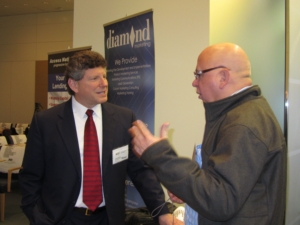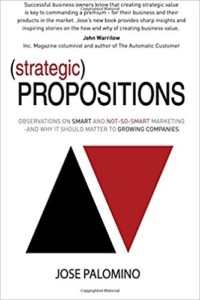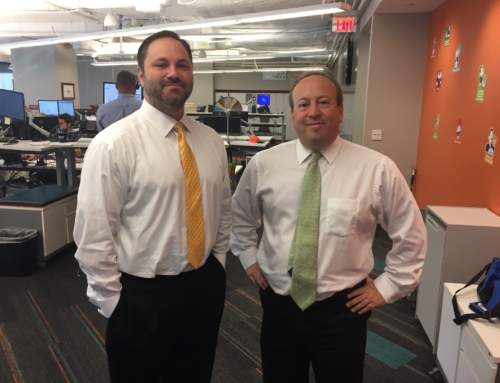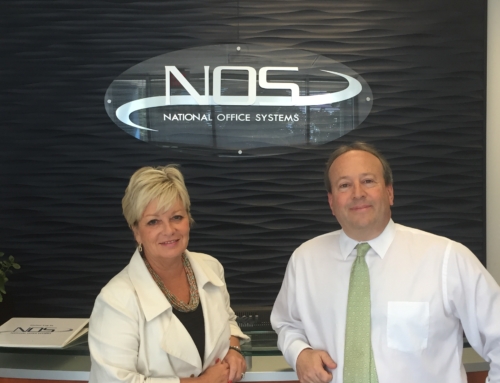By Fred Diamond
IES Co-Founder
When speaking with sales reps about their frustrations at a recent Institute for Excellence in Sales Young Professionals in Sales (YPIS) program one of the not-so-surprising complaints was about non-responsive prospects. They talked about seemingly great prospects who took their calls, sat through a demo, asked for a proposal and then never responded back. Then one junior sales professional said, “It’s even worse when the customer is a friend.” Got me to thinking about what happens when a friend becomes a prospect and then goes non-responsive. Are there ways to get a friend who has gone silent to at least return your call? We pinged some of the sales thought leaders who have spoken at the IES to get their insights.
I talk to sales professionals every day about the challenges they face. Our mission is to work with them on ways to solve these problems. One of the most common is how to unhinge a prospect that has gone cold. We’ve all been through this before. Sometimes it’s “hurry up and wait” when a customer or a prospect says they have an urgent need for your offering and asks for a proposal to be sent ASAP and then you never hear from them.
You bring the resources together and respond with something compelling. You might even put in some incentives to hasten the response. And since the prospect is a friend, such as an existing customer or a partner or a real life buddy, you automatically assign a higher likelihood to the deal. I hope you didn’t already spend the commission money.
And then it happens. They go silent. A week goes by with no response. You call and get voicemail. Friendly texts go unanswered. You see them posting nice photos of their kids on the beach on Facebook, but no response to you. What’s the scoop? Should you still remain friends? Don’t you at least deserve the courtesy of a reply? You are not alone.
We asked four IES speakers for their thoughts and here’s the interesting thing. They all had the same response – it’s not the prospect’s fault, it’s yours! What?
IT’S YOUR FAULT, NOT YOUR FRIEND’S FAULT
 Andy Miller of Big Swift Kick has spoken at the IES on two occasions most recently about GRIT and its importance for sales performance success. He works with private equity firms to ensure that the companies they invest in are optimizing their sales and business development performance.
Andy Miller of Big Swift Kick has spoken at the IES on two occasions most recently about GRIT and its importance for sales performance success. He works with private equity firms to ensure that the companies they invest in are optimizing their sales and business development performance.
I asked him for his thoughts.
“Fred, in my 25 years of working with salespeople, what I’ve noticed about selling to friends is actually counterintuitive. Too many times I’ve seen salespeople get over-confident, too relaxed, sloppy on sales process, skip important questions and fail to set proper expectations which leads to what we call mutual misunderstanding,” he said.
He said that the misconception is that it is okay to take shortcuts and provide extra resources or consulting to your friend because “we have a great relationship.” The salesperson thinks they are doing their friend a favor when they are actually putting their friendship at risk. Next, the salesperson makes assumptions and delivers a premature quote/proposal that ends up on the monthly forecast… month after month after month.
What the salesperson thought was going to be a quick and easy sale now has them frustrated because “this is not the way friends treat each other.” The harsh reality is that this was totally preventable and it’s the salesperson’s fault!
Andy advised that if you want to sell to friends, here are some tips to preserve your friendship and improve your chances of making a sale:
- Be extra vigilant on sticking to your sales process.
- Make sure to ask all the qualifying questions you usually ask.
- Communicate clear and detailed next steps for you and them.
- Set clear expectations for all parties (no guessing or filling in the blanks).
- Let them know your friendship is more important than their business, so it is okay for them to say, “let’s not do this.” And if they do, you need to deal with it.
MAYBE YOU CAN JUST HAVE FUN WITH IT?
Bill Cates, president of Referral Coach International and author of Beyond Referrals suggested we try a fun approach to getting your friend’s attention. He has taught tens of thousands of sales professionals around the globe how to build their referral network to get more clients. He suggested easing up a bit and taking a more casual approach. Here’s a suggested email he said you could send:
SUBJECT: George – Are you okay?
MESSAGE:
George – I haven’t heard back re: the proposal you requested, so I’m checking in to make sure you’re okay.
Please check all that apply:
__ I’ve been stuck on an island with Tom Hanks and some volleyball he keeps calling “Wilson.”
__ I’m so sorry for my silence. If you want to know the truth, your proposal wasn’t even close to what we wanted and I felt bad calling you.
__ Do I know you? Can you remind me the context? I hit my head in a bumper car accident and am slowly reconstructing my life.
__ Very sorry Bill. The project got stalled. I should have told you. Let’s set up a call.
Thanks, George! Let me know the status and we’ll proceed appropriately.
BILL
Taking the light-hearted game approach may be the ticket to get an honest response from your friend.
IT’S NOT ABOUT FRIENDSHIP, IT’S ABOUT FUNDAMENTAL SELLING HABITS
Mike Schmidtmann has headlined a few times at the IES and runs sales leader peer support groups around the US. He’s had great success selling to very large companies and shook his head when I asked him the question.
“Fred, the real problem has nothing to do with friendship; it has to do with fundamental selling habits. 99% of the time when this happens, the salesperson has never nailed down a follow up commitment up front. The prospect will say something like “I’ll look it over and I’ll get back to you” or “let me circle back in a week or two,” he said.
No salesperson should ever leave a meeting or conversation without first setting and confirming the date and time for follow up.
“Some” is not a time, and “Later” is not a date.
If you’ve confirmed a follow up date and time, you have every right to hold the other person accountable. He advised that sales professionals think like a professional and act like a professional at all times, even with friends and family.
WHAT MEANS MORE TO YOU, THE FRIENDSHIP OR THE DEAL?
Jose Palomino of Value Prop was a very popular speaker at the IES a few years ago. His new book, Strategic Propositions: Observations on Smart and Not-So-Smart Marketing, and Why it Should Matter to Growing Companies was just published. Check it out! We asked him for his thoughts.
 “Fred, when selling to a friend or being sold to by a friend, the same rule applies: what means more to you, the friendship or the deal? This goes to the issue of expectations. In short, don’t burden your friendship with an expectation that your proposal will travel any different a road than it would normally,” he suggested.
“Fred, when selling to a friend or being sold to by a friend, the same rule applies: what means more to you, the friendship or the deal? This goes to the issue of expectations. In short, don’t burden your friendship with an expectation that your proposal will travel any different a road than it would normally,” he suggested.
He continued, this was an interesting twist on the question. Your friendship got you the “at bat” – but you still have to work the follow-through using the same best practices as always. If you’re getting “radio silence” – how would you normally break though? Do that! And, don’t let the outcome anger you – your friend is dealing with their own situation – if you sell the value (and really made your case) – you will get the call back, because they need what you have. And if you don’t, they didn’t! Deal with it and move on.
HERE’S YOUR CHALLENGE
The Institute for Excellence in Sales is bringing Brent Adamson, co-author of The Challenger Sale to speak on September 15 in Fairfax, Virginia. One of the main themes of The Challenger Sale was the lessened role that relationships play in sales these days, mainly because the customer now has more information and they believe that while your products and offerings might be good, they probably believe your competitors’ brand and products are good, too. Brent said, “This is no longer a game of what you sell, it truly has become a game of how you sell and the insight delivered in that sales experience.”
As it relates to relationships and friendships, “Challengers are above average on all of the “relationship building” attributes. But, there is an important distinction in how Challengers build relationships. Instead of establishing trust through longstanding personal relationships, Challengers push the customer’s thinking to quickly gain creditability. Instead of resolving tension in the relationship, they create constructive tension, helping customers understand the urgency and impact of a new behavior.”
You can hear more about what it takes to be a Challenger – and “constructive tension” – at Brent’s presentation on September 15. If you are already a Challenger or aspire to be one, register for the program now.
What do you think? Are the experts correct? Is it your fault or should you expect more from a “friend”?
How to reach the experts in this blog.
Bill Cates is president of Referral Coach International and author of Beyond Referrals. He can be reached here.
Andy Miller is CEO of Big Swift Kick, a sales consulting firm who gets paid on results. Andy can be reached at 703-822-8178 or amiller@bigswiftkick.com.
Jose Palomino is the CEO of Value Prop in Malvern, PA. His new book Strategic Propositions: Observations on Smart and Not-So-Smart Marketing, and Why it Should Matter to Growing Companies is now available. You can reach him here.
Mike Schmidtmann teaches owners of IT companies how to hire great salespeople and win new customers. Mike’s Contact info: www.mikeschmidtmann.com. 703-408-9103.






